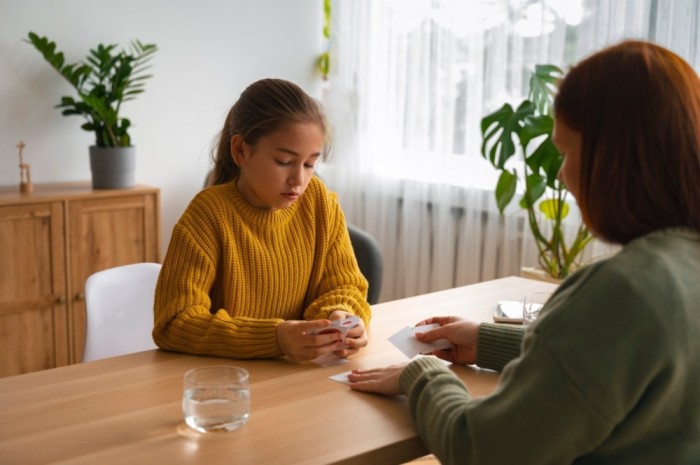What is Group Therapy Like in Pennsylvania?
Better Help therapy provides Pennsylvania residents with professional and effective group therapy services.
Group therapy has become one of the most common modes of interventions in the state of Pennsylvania for mental illness. It is a form of psychotherapy where persons with a common challenge are brought together into a warm and secure setting, facilitated by a licensed professional in mental health. Such forms of therapy are particularly suited to individuals wanting to improve their communication skills and gain insight into their patterns of behavior while at the same time obtaining support from others who have gone through similar experiences.
Group therapy sessions structure In PA
A group therapy session in Pennsylvania would normally contain five to ten members and one or two facilitators who will guide the discussion. These can be about anything depending upon the needs of the people making up the group. Some groups are centered around a very specific anxiety, depression, trauma, addiction recovery issue, or whatever the case may be. The aim here is to provide a comfortable atmosphere in which participants can express their emotions and take suggestions from others for solutions, bringing about an interactive learning process.
Each session generally starts with the checking-in part whereby participants briefly tell any update or problems encountered since the last meeting. Discussion follows, usually based on one theme, such as coping strategies or relationship issues. Members are invited for active participation in discussion but never obliged, at the same time they can sit and listen. This gives room for active participation and reflective observation to take place in the session and nobody is compelled beyond his/her comfort zone.
Benefits of Group Therapy In Pennsylvania

The nature of the group therapies, in themselves, brings in a number of advantages that are underlined below:
Peer Support: Sharing your experiences with people struggling to understand you can be highly valid. This will cut down on the feelings of loneliness and isolation.
Diverse Perspectives: Members learn from the insights and experiences of others in ways that help them to see things differently and change thought processes and problem-solving techniques.
Improved social skills: Group discussions aid participants in establishing better ways of communication and interrelating, which may be of help to them in daily life.
Affordability: Group therapy is mostly cheap compared to individual therapy sessions; hence it is more accommodating.
Various studies indicate that group therapy is sometimes just as effective, if not as effective, as individual therapy for a wide range of disorders due to the increased social interaction and building of coping mechanisms. This makes it a very viable option for those with symptoms of social anxiety, interpersonal conflicts, or even life transitions.
Types of Available Group Therapy in Pennsylvania
There are many different types of group therapy available in Pennsylvania to fit a wide range of mental health needs:
Cognitive Behavioral Emphasize the identification of negative thought patterns that are changed through the application of CBT principles. Support Groups: Less formal and centered around emotional support and the sharing of experiences by participants facing specific life issues: grief, chronic illness, addiction. Skills Development Groups: Skills development groups focus on teaching the skills to cope and/or manage stress, anger.
Process-oriented groups: These groups allow their members to discuss, in an open-ended way, underlying emotional issues. Members learn more about themselves and how to grow as persons.
Facilities like BetterHelp, along with local clinics around Pennsylvania offer online and in-person options for group therapy, making mental health more accessible to people in every part of the state.
First Session Overview
If you’re new to group therapy, you might naturally feel apprehensive before your first session. Most facilitators start with setting ground rules to help participants feel at ease and safe. Confidentiality is emphasized, and what’s shared in the group stays in the group. A session may be initiated with introductions, and the purpose of the group and its structure explained; thus, allowing new members to relax into the process.
Participants are encouraged to share when ready; the participants are never forced into disclosing information that they are not ready to share. Most of these members, after some time, end up finding the group to be a source of strength and motivation.
How to Locate Group Therapy in Pennsylvania
There are, however, several ways in which one can access the right group therapy offered within Pennsylvania. Online sites, like BetterHelp, make it convenient for one to participate in sessions from the comfort of their home, while face-to-face sessions are provided via a local clinic depending on any specific mental health need you might have. You may check a directory like Psychology Today for a detailed list of all the active support groups near your place.

Key Takeaways
Group therapy allows for an encouraging atmosphere to share experiences and understand others.
It is effective in enhancing communication skills, building coping strategies, and relieving feelings of loneliness.
Options in Pennsylvania include cognitive behavioral treatment groups, support groups, and specialized sessions addressing other needs tailored to one’s condition.
Online platforms such as BetterHelp provide flexible group therapies online, and all other centers offer their therapies with flexibility.
FAQs
1. Is group therapy as effective as individual therapy?
Yes, this can be as effective as an individual therapy, provided the problems are mostly related to social interactions and interpersonal relationships.
2. How many people does a group therapy session contain?
Most group sessions contain approximately 5-10 participants and one or two leading therapists.
3. Am I forced to share my experience in group?
No, though sharing may be often helpful and productive in the therapy, it is entirely up to you how much you want to disclose. You also benefit by just listening to others.
4. Is an online session of group therapy possible in Pennsylvania?
Yes, the majority of such platforms, for example, BetterHelp, provide the option of online group sessions, so this service is available for those who prefer to seek support remotely.
Group therapy is available with extensive utilization in several options inside Pennsylvania as one of the support ways for mental health and wellness.